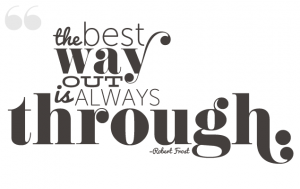Anyone, even a sleep consultant, can struggle with insomnia.
A couple of years ago, I experienced my first bout of unexplained sleepless nights. I don’t like to use the word insomnia, it yields way too much power. More on that later.
Sign Up For Our Newsletter
I have a solid education in children’s sleep, but the science behind adult sleep was a newer concept to me. Naturally, I began to do some reading, and what I found was a lot of conflicting information. Sound familiar?
I initially treated myself by taking Benadryl at night to help me sleep. Admittedly it worked, in that at least I fell asleep relatively easily. Sure, I woke up feeling groggy and not very rested despite the clock saying that I’d just slept close to 8 hours, which is supposedly the magic number for adults. But taking a pill felt a whole lot easier than trying to figure out what else to do. This is also what drives many to give Melatonin a try – another medicinal option that isn’t really a good option at all.

But the fact of the matter was, I didn’t like it. I didn’t like the idea of depending on anything to help me with a process that should be a natural, brain-controlled mechanism, which is exactly what sleep is. And because we sleep every day, I was facing this challenge and the dilemma on a constant loop. I couldn’t hide from it no matter how hard I tried.
Do The Work
Once I committed to doing the work to make changes, I found that many of the hurdles I needed to confront to get my own sleep back on track were the same issues that parents of young children with sleep issues face. Things like:
- Breaking negative associations
- Being consistent, both with personal schedule and bedtime routine and rituals
- Respecting and optimizing ideal sleep times
Read More About How You Can Sleep Better
Why am I telling you all of this? Because there are so many parallels between how we teach our children to sleep and how we as adults learn a new habit. Often times, it feels so much easier to just continue doing “what works” even if it clearly becomes too hard to sustain much longer. Facing the alternative—particularly when you’re already exhausted—feels like it’s simply: Too. Much. Work. The thing is, problems rarely just work themselves out, not without at least some effort and understanding on our part of what’s driving them.
Keep An Open Mind And Be Consistent
Which brings me back to why I don’t like the word insomnia. By assigning this problem a name that sounds like a disease, it implies that only something external can cure it. It takes the power and motivation away from ourselves. It’s the same with helping our children’s sleep. Making excuses—“This won’t work for my child.” “My child is different.” “This will be too hard on us.”—implies that there is some magical cure out there that will do the work for us. And there’s not.
The beauty of working with children is that sleep issues tend to be a lot more straightforward to treat than those of adults, mainly because of the absence of complex psychological issues impeding progress. For them, consistently breaking negative sleep associations and consistently aligning their sleep schedules with their little body clocks is usually what does the trick. When I work with families, I know that there is not one single method that works for everybody and so I never advocate one over the other. But what does work is consistency, commitment, and respect of a child’s natural sleep rhythm.
For my own personal struggle, it wasn’t easy and I’ve had some setbacks along the way. But the fact remains that I took control and it has made all the difference, not only with my sleep but with my own confidence in my ability to change things—anything— for myself. Conquering any life issue that makes you feel helpless and lost is the most surefire way to develop the confidence you need to tackle other life’s hurdles when they inevitably creep up.
So as my colleagues like to say:
Will it be easy?
No.
Will it be worth it?
You bet.
Written by a Good Night Sleep Site Consultant.
Good Night Sleep Site provides free child and family sleep support through Facebook, Twitter, and Instagram. We invite you to join our sleep community as we work towards Good Night Sleep Site’s mission of a healthier rested family unit. For more sleep tips, subscribe to our newsletter and visit Good Night Sleep Site.











